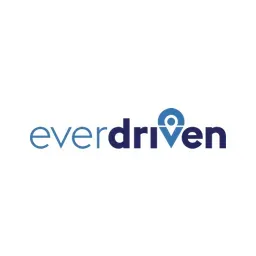EverDriven is seeking to solve complex Vehicle Routing Problems (VRP) to ensure safe, efficient, and cost-effective transportation for children with special needs
Requirements
- Deep theoretical and practical understanding of the Vehicle Routing Problem and its variants, and solution methodologies.
- Strong background in mathematical optimization, linear programming, statistical analysis, and combinatorial optimization
- Proven experience building and implementing optimization or ML models in Python (or R with experience translating R to production-level Python code)
- Experience with open source data science toolkits including Python (numpy, pandas, scikit, PySpark) or R (Tidyverse/Tidymodels)
- Hands-on experience with at least one optimization solver (e.g., Gurobi, CPLEX, SCIP, Google OR-Tools).
- Familiarity with geospatial data and tools (e.g., PostGIS, GeoPandas, OSRM).
- Proficiency with data science and machine learning libraries (e.g., pandas, NumPy, scikit-learn, PyTorch).
Responsibilities
- Model & Algorithm Development: Design, build, and implement advanced optimization models for various VRP contexts, including Capacitated VRP (CVRP), VRP with Time Windows (VRPTW), and dynamic routing scenarios.
- Heuristics & Solvers: Develop and refine custom heuristics and metaheuristics (e.g., Tabu Search, Genetic Algorithms) to find high-quality solutions for large-scale, real-world problems.
- Data Analysis & Simulation: Analyze historical and real-time data—including student locations, school bell times, traffic patterns, and vehicle telematics—to inform model parameters and constraints.
- Predictive Modeling: Build and deploy machine learning models to support the routing engine, focusing on areas like travel time estimation (ETAs), demand forecasting, and anomaly detection.
- Cloud-based Data Science - Standing up and working in cloud-based data science environments.
- MLOps & Model Lifecycle Management: Own the end-to-end lifecycle of predictive models, including automated deployment, performance monitoring, drift detection, and continuous retraining to ensure accuracy and reliability in a live production environment.
- Production Implementation: Write robust, production-ready Python code to integrate your optimization and ML models into our live operational platform.
Other
- Master’s degree or PhD in Operations Research, Industrial Engineering, Computer Science, Applied Mathematics, or a related quantitative field.
- 3+ years of professional experience in an operations research, data science, or quantitative role with a focus on optimization or machine learning.
- Ability to translate models into software design functional requirements and specifications.
- Strong proficiency in SQL for data extraction and analysis.
- Travel requirement not mentioned, but role is hybrid with 3 days in the office and 2 days remote.
